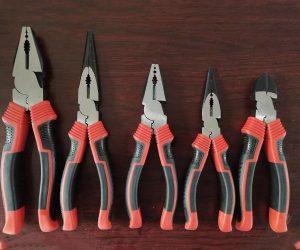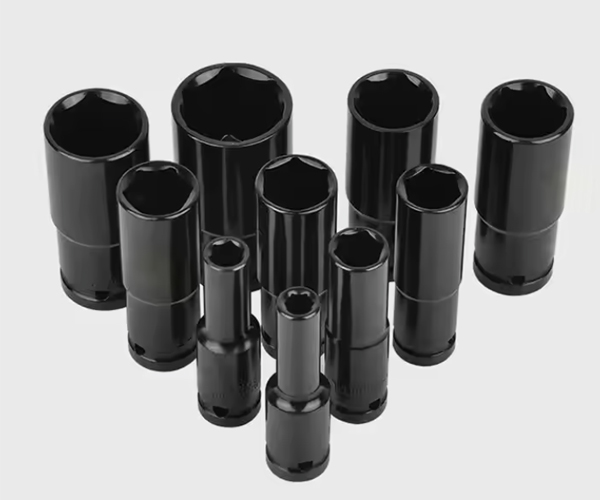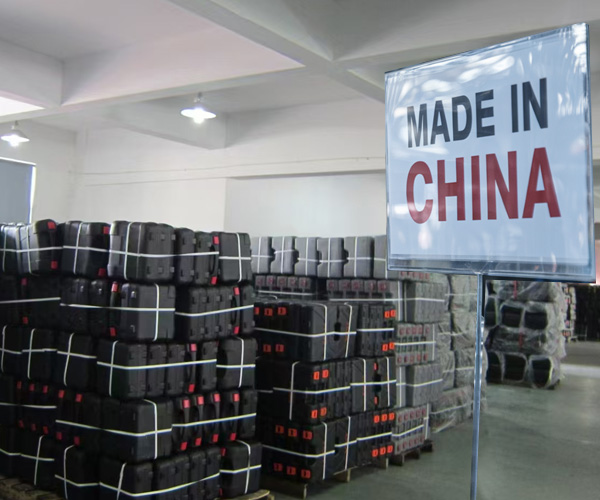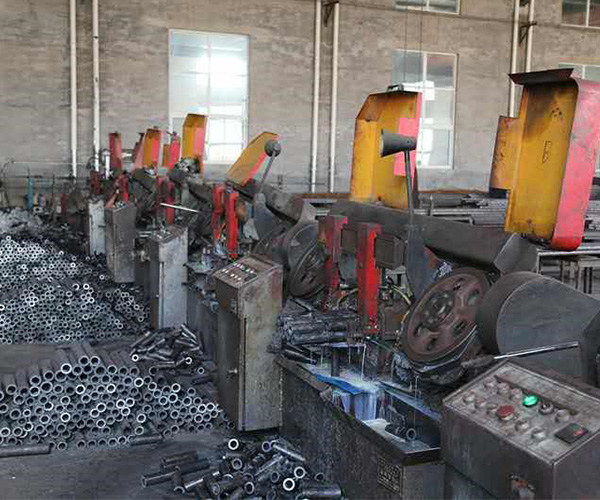When you’re in the market for hand tools, whether for personal DIY projects, professional work, or retail distribution, finding the right supplier can make all the difference. Choosing a reliable wholesale hand tool supplier not only ensures access to a wide variety of tools such as hammers, screwdrivers, pliers, pipe cutters, and more, but it also allows you to take advantage of competitive prices and bulk purchasing benefits. Wholesale suppliers often provide customizable options, making it easy for businesses to brand their own lines of tools while meeting the needs of various industries. In this comprehensive guide, we’ll walk through the key considerations for selecting the right wholesale supplier, the types of tools available, and how to ensure you’re getting the best deal.
What Are Wholesale Hand Tools?
Wholesale hand tools are products sold in large quantities at reduced prices, typically aimed at businesses that need tools in bulk. These tools cover a broad range of categories, from simple household items to highly specialized instruments used in specific industries like automotive, woodworking, electrical work, and plumbing. Buying wholesale hand tools is common for companies involved in retail, construction, manufacturing, or anyone looking to equip teams or resell tools under their own brand.
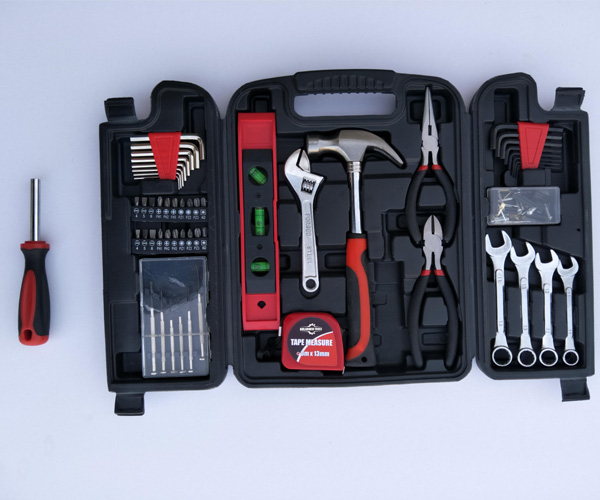
Purchasing tools from wholesale suppliers offers multiple advantages. The most obvious is the price point. When buying in bulk, the cost per unit significantly decreases, providing an opportunity for resellers to improve their profit margins. Moreover, wholesalers often work directly with manufacturers, cutting out middlemen, which also contributes to lower prices. This approach enables businesses to keep their costs down, ultimately offering competitive pricing to end consumers while maintaining quality.
Another critical advantage of buying wholesale hand tools is the ability to place custom orders. Many suppliers offer OEM (Original Equipment Manufacturer) services, which allow buyers to tailor tools to their brand specifications. This is an invaluable service for businesses seeking to differentiate their offerings in a competitive market, offering branded tools that stand out.
Why Choose Wholesale for Hand Tools?
Choosing a wholesale hand tool supplier offers several compelling advantages. First, the pricing structure allows for considerable savings. Whether you are a contractor looking to equip your team or a retail store wanting to stock up on essential tools, the lower per-unit cost of wholesale hand tools is appealing. This lower price point also extends to premium tools, so businesses can access higher-quality tools for less.
Second, bulk purchasing enables businesses to maintain consistent stock levels without frequent restocking. This is crucial for companies that have seasonal demand or those that serve industries where hand tools are regularly replaced due to wear and tear. By working with a wholesale hand tool supplier, you can ensure that your inventory remains well-stocked, reducing the likelihood of delays that could impact operations.
Customization is another significant advantage. Many suppliers offer the option to customize tools with your logo, packaging, and other branding elements. This allows businesses to maintain brand consistency and adds value for retailers who want to offer a branded line of tools.
Lastly, the variety of tools available from wholesale hand tool suppliers is vast. Whether you need hammers, screwdrivers, pliers, pipe cutters, or more specialized tools for woodworking or electrical work, you’ll find suppliers that can meet all your needs. The ability to source all of your tools from one supplier simplifies the purchasing process, helps with logistics, and can even lead to additional discounts for large orders.
Benefits of Purchasing Hand Tools from Wholesale Suppliers
Competitive Pricing
One of the primary reasons businesses choose wholesale suppliers is to take advantage of competitive pricing. When tools are purchased in bulk, the supplier can offer a lower price per item, which translates to significant cost savings for the buyer. Whether you are buying for resale or personal use, this pricing model makes wholesale suppliers attractive, especially for those needing a wide range of tools.
For example, buying a set of hammers or screwdrivers in bulk from a supplier can reduce your cost by up to 30-50% compared to purchasing the same items individually at retail prices. Wholesale suppliers often provide tiered pricing, where the cost per unit decreases as the order size increases. This means that businesses with large volume orders can negotiate even better prices.
Furthermore, wholesale hand tool suppliers frequently offer promotions or discounts based on the season, market demand, or overstock situations. Staying in touch with your supplier can ensure that you’re always in the loop for the best deals. These discounts provide further opportunities to save and improve your bottom line, making it easier to offer competitive prices to your customers without compromising on quality.
Custom Branding Opportunities
For businesses looking to resell tools under their own brand, working with a wholesale hand tool supplier provides a fantastic opportunity to customize products. Most suppliers offer OEM services, which allow you to customize everything from the tool’s design and color to the packaging and labeling. This is particularly important for companies aiming to build a distinctive brand image.
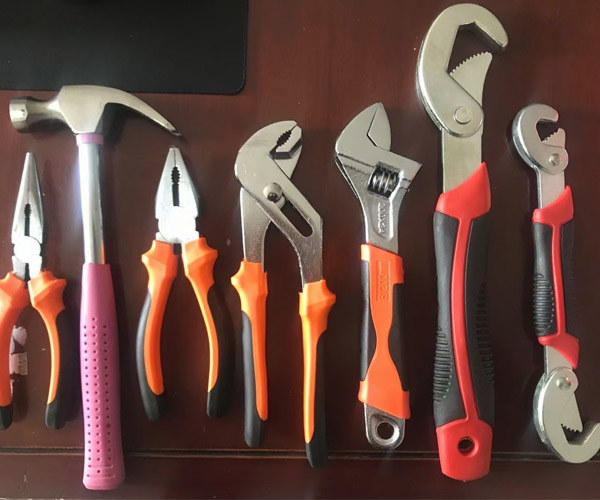
Custom branding not only gives you the ability to stand out in a crowded market but also allows you to offer added value to your customers. For instance, if you are a retailer selling screwdrivers or pliers, you can work with the supplier to ensure the tools reflect your brand’s identity. This could involve custom logos, unique packaging designs, or even exclusive product lines that can only be purchased from your store. Offering branded tools can elevate your brand’s reputation and customer loyalty while also giving you a competitive edge.
The custom branding process typically involves working closely with the supplier’s design and manufacturing team to ensure the finished product aligns with your brand’s vision. The best suppliers will have a streamlined process in place to make customization simple and cost-effective.
Wide Variety of Tools
Wholesale suppliers offer a vast selection of tools. Whether you need hammers, screwdrivers, pliers, pipe cutters, or something more specialized, the right supplier will have you covered. This variety is one of the key benefits of working with wholesale suppliers, as it allows businesses to fulfill multiple tool needs from a single source.
Hammers are one of the most commonly purchased tools, and they come in a variety of types for different tasks—claw hammers, ball peen hammers, sledgehammers, and more. Each type serves a different function, and a good wholesale supplier will offer multiple options to fit various project requirements.
For businesses involved in automotive repair or manufacturing, pliers are a must-have tool. Whether it’s slip-joint, needle-nose, or cutting pliers, the range available from a wholesale hand tool supplier can cater to all your needs. Electrical workers, for instance, often rely on specialized pliers designed for cutting, crimping, and stripping wires. A reliable wholesale supplier will have these tools readily available, ensuring you always have the right equipment on hand.
Another essential tool for many industries is the pipe cutter, used primarily in plumbing. These devices allow plumbers to cleanly cut through pipes with minimal effort, ensuring a precise and professional finish. Wholesale suppliers typically offer various types of pipe cutters, from manual to automatic models, making it easier to find the right tool for your needs.
How to Choose the Right Hand Tools
Selecting the right hand tools for your business or personal use requires a thorough understanding of the different options available. Each tool category offers various styles, sizes, and functionalities tailored to specific tasks. Knowing which features to prioritize can help you make informed purchasing decisions.
How Do I Choose the Right Screwdriver Set?
Choosing the right screwdriver set is essential, especially if you’re buying tools for a business where versatility and durability are key. When selecting a set, you should consider the types of screws you will most frequently encounter, as different screwdrivers are designed for different types of screws.
Phillips, flathead, Torx, and hex are just some of the common types of screwdrivers. If your work involves a wide variety of screws, it may be best to invest in a complete set that includes multiple sizes and types. Durability is another crucial factor. The best screwdriver sets are made of hardened steel to withstand regular use without wearing out or bending. Moreover, ergonomic handles should not be overlooked—good grip and comfort during long periods of use are essential for any screwdriver set.
In summary, when looking to purchase a screwdriver set from a wholesale supplier, focus on versatility, material durability, and comfort. These features ensure the longevity of the tools, making them a valuable investment for your business or personal tool collection.
What Type of Pliers Should I Use for Electrical Work?
Selecting the right pliers for electrical work is critical, as these tools are used in almost every phase of wiring projects. For electrical work, you will need several types of pliers, including lineman’s pliers for cutting and twisting wires, needle-nose pliers for reaching into tight spaces, and crimping pliers for securing connectors.
For electrical tasks, pliers are indispensable due to their versatility. The specific type of pliers you choose will depend on the nature of your electrical work. Lineman’s pliers are the most commonly used tool for cutting, bending, and twisting wires. Their robust design allows electricians to apply significant force when needed, making them a must-have for anyone working with thick cables or heavy-duty wiring.
Needle-nose pliers are another essential tool for electrical work, particularly when you need to reach into tight or awkward spaces. Their slender, pointed design is ideal for precision tasks, such as installing small components or manipulating wires in confined areas like electrical panels.
Crimping pliers are specialized for securing connectors onto cables. These pliers are crucial when working with terminals or cable connectors, ensuring that wires remain securely fastened. When selecting crimping pliers, it’s essential to consider the size and type of connectors you will be using to ensure compatibility.
When purchasing pliers from a wholesale hand tool supplier, it’s vital to assess the quality of the tools. Look for pliers made from high-quality steel with corrosion-resistant coatings, as these materials are more durable and can withstand frequent use in demanding environments. Ergonomic designs that reduce hand fatigue are another critical feature to consider, particularly for professional electricians who use these tools daily.
How Do Pipe Cutters Work in Plumbing?
Pipe cutters are specialized tools used by plumbers to create clean, precise cuts in piping materials such as copper, PVC, and steel. These tools come in a variety of designs, each tailored to different pipe sizes and materials. Understanding how they work and the types available can help you select the right model from a wholesale supplier.
Manual pipe cutters typically feature a rotating cutting blade that is tightened around the pipe until it slices through. These are perfect for smaller pipes and are often used in residential plumbing projects. Automatic or ratcheting pipe cutters, on the other hand, are more suitable for larger or harder materials. These tools require less manual effort and provide a more consistent cut, making them ideal for professional plumbers who need efficiency and precision.
A wholesale hand tool supplier will offer a variety of pipe cutters for different materials and pipe diameters. The most important factor when choosing a pipe cutter is ensuring it matches the size and type of pipe you’ll be working with. Additionally, selecting a pipe cutter with a high-quality, replaceable cutting wheel can extend the tool’s lifespan, making it a cost-effective choice for your business.
In addition to manual and automatic models, some pipe cutters come with specialized features like built-in reamers, which help remove burrs and smooth the inside edges of the pipe after cutting. This is particularly useful when working with materials like copper, where smooth edges are necessary for proper fitting and sealing.
Understanding Hammer vs. Mallet: What Is the Difference?
Hammers and mallets may seem similar, but they serve very different purposes in various industries. Understanding the distinction between the two is critical, especially when sourcing these tools from a wholesale hand tool supplier.
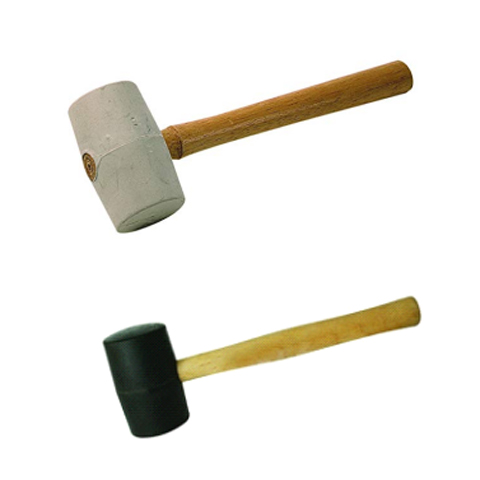
A hammer is designed for driving nails, breaking objects, and applying force to specific points. The head is typically made of metal, which provides the strength necessary for tasks like framing, demolition, or automotive repair. Claw hammers, for instance, are ideal for carpenters, as they allow users to drive and remove nails with ease. On the other hand, sledgehammers offer heavier force and are commonly used in construction for breaking through materials like concrete or brick.
In contrast, a mallet has a softer, typically non-metallic head, often made of rubber or wood. This design is intended to deliver force without damaging the material being struck. Mallets are commonly used in woodworking to drive chisels or to assemble joints without leaving dents or marks. They’re also used in other delicate tasks where the goal is to shape or move materials without causing damage.
When choosing between a hammer and a mallet from a wholesale supplier, consider the materials and tasks involved. If your work requires forceful strikes on tough materials, a hammer will likely be your tool of choice. However, if you need to apply force to softer materials without causing damage, a mallet would be more appropriate.
Factors to Consider When Choosing a Wholesale Hand Tool Supplier
Choosing the right wholesale hand tool supplier involves more than just finding a low price. To ensure you receive quality tools that meet your business’s needs, several factors must be considered.
Supplier Location and Manufacturing Base
The location of the supplier can significantly affect both the cost and timing of your shipments. Suppliers located in manufacturing hubs like China often offer the best prices due to their proximity to large-scale production facilities. However, longer shipping times and potential customs delays should be factored into your decision if you are located far from these regions.
A wholesale hand tool supplier with multiple warehouses or distribution centers around the world can mitigate some of these concerns by reducing shipping times and costs. It’s also essential to verify that the supplier has a well-established logistics network that can handle your order efficiently, especially for large or urgent shipments.
Quality Standards and Certifications
Quality should always be a top priority when purchasing tools in bulk. Look for suppliers who provide detailed information on the quality standards and certifications their tools meet. Industry-standard certifications such as ISO 9001 or CE are good indicators that the tools adhere to rigorous manufacturing and safety standards. These certifications are particularly important if you plan to resell the tools in regulated markets where certain standards must be met.
Additionally, some tools, especially those used in specialized industries like electrical or automotive work, may require specific safety certifications. Make sure your supplier provides documentation to verify compliance with these standards.
Logistics and Delivery Timelines
Efficient logistics and predictable delivery times are crucial when working with a wholesale supplier. Delays in receiving your tools can lead to project setbacks or missed sales opportunities. Ask potential suppliers about their typical lead times, as well as their ability to handle urgent or rush orders. A reliable supplier should be able to provide an estimated delivery window based on your location and order size.
It’s also worth considering whether the supplier offers drop-shipping services or warehousing solutions if you need to store large quantities of tools for ongoing projects.
Customer Reviews and Reputation
Before committing to a wholesale hand tool supplier, it’s essential to do some research into their reputation. Check online reviews on platforms like Alibaba, Made-in-China, or Trustpilot to get a sense of other buyers’ experiences. Pay attention to feedback about product quality, shipping times, and customer service, as these are the key factors that will impact your experience.
Establishing a relationship with a reputable supplier will ensure that you receive the tools you need on time and at the expected quality. Additionally, trusted suppliers are more likely to offer support and resolve any issues that may arise during the purchasing process.
How to Ensure You Are Getting Reasonable Prices
Compare Multiple Suppliers
When sourcing tools in bulk, it’s vital to compare pricing across multiple wholesale hand tool suppliers. Platforms like Alibaba or attending trade shows can give you access to several suppliers at once, allowing you to evaluate their offerings side by side. Don’t just focus on the initial price—ask about volume discounts, payment terms, and whether they offer price breaks for larger orders.
Negotiating the best price often involves discussing the total value of the deal, including shipping costs and any additional services the supplier offers, such as custom branding or packaging. This holistic approach ensures you’re getting the best possible deal without sacrificing quality or service.
Negotiate Pricing
Wholesale suppliers are often willing to negotiate on price, especially for larger orders. If you’re placing a significant order or committing to a long-term business relationship, don’t hesitate to ask for discounts. Suppliers may offer better terms based on the size of your order, your payment schedule, or if you’re willing to place recurring orders.
To successfully negotiate, it’s essential to have a clear understanding of your budget and the prices offered by competing suppliers. Armed with this information, you can make a compelling case for a price reduction or additional perks like faster shipping or extended warranties.
Understanding Hidden Costs
When evaluating the total cost of your order, don’t forget to account for hidden expenses such as shipping fees, customs duties, or taxes. Some suppliers may offer lower product prices but higher shipping rates, so it’s essential to calculate the total landed cost of the tools to ensure you’re still getting a good deal.
Shipping costs can vary significantly depending on the size and weight of the order, the shipping method, and the distance between the supplier and your location. Be sure to discuss these costs with the supplier upfront to avoid any surprises later on.
Where to Find Wholesale Hand Tool Suppliers
Online Marketplaces
Online platforms like Alibaba, Made-in-China, and Global Sources are popular destinations for sourcing wholesale hand tools. These marketplaces allow you to browse products from multiple suppliers, compare prices, and read customer reviews. They also provide a secure environment for placing orders and communicating with suppliers, making them a convenient option for buyers worldwide.
However, one drawback of using online marketplaces is that it can be challenging to verify the quality of the tools without seeing them in person. To mitigate this risk, many buyers request samples before placing a large order to ensure the tools meet their standards.
Trade Shows and Expos
Attending trade shows like the Canton Fair provides an excellent opportunity to meet suppliers in person, view product samples, and negotiate deals on the spot. Trade shows are also a great place to discover new suppliers and stay up-to-date on industry trends.
Preparing for a trade show involves researching the exhibitors ahead of time, setting up meetings with potential suppliers, and being clear about your needs. With the right preparation, trade shows can be a highly effective way to find reputable suppliers and secure better deals.
Industry Networks and Referrals
Word of mouth is another powerful way to find reliable wholesale suppliers. Reach out to your industry contacts, colleagues, or online forums for referrals. A supplier recommended by someone you trust is likely to provide good service, as their reputation is on the line.
Once you’ve identified a potential supplier, it’s always a good idea to ask for references. Speaking directly with other customers who have worked with the supplier can give you valuable insights into their reliability and quality.
Common Challenges When Buying Wholesale Hand Tools
Communication Barriers
When working with international suppliers, language differences can create communication barriers. Misunderstandings regarding order specifications, shipping terms, or payment schedules can lead to delays or incorrect shipments. To avoid these issues, it’s essential to establish clear, written communication with your supplier from the beginning.
Many suppliers on platforms like Alibaba have multilingual sales teams, but it’s still a good idea to double-check that all details of your order are clearly understood. Using diagrams, pictures, or other visual aids can also help ensure there’s no confusion about your requirements.
Shipping Delays and Logistical Issues
Shipping delays are a common issue when ordering wholesale, especially if your supplier is located overseas. Factors such as customs processing, port congestion, or transportation issues can all contribute to delays.
One way to mitigate these risks is to work with suppliers that have a reliable logistics network and experience with international shipping. It’s also helpful to build in buffer time when planning for your orders, especially if you’re working with tight deadlines.
Fraud and Supplier Misrepresentation
Unfortunately, fraud can be an issue when working with unfamiliar suppliers. Some suppliers may misrepresent the quality of their products or fail to deliver on their promises. To protect yourself, always research your suppliers thoroughly and consider using third-party inspection services to verify the quality of the tools before they are shipped.
Requesting samples, reading reviews, and using escrow payment services can also reduce the risk of fraud. Additionally, platforms like Alibaba offer buyer protection programs that can provide some financial security in case of disputes.
Best Practices for Establishing Long-Term Relationships with Suppliers
Building Trust with Regular Orders
Establishing a long-term relationship with your supplier can lead to better pricing, improved service, and more consistent product quality. Regular orders demonstrate your commitment as a buyer, which can lead to priority treatment when placing large or urgent orders. Many suppliers are willing to offer discounts or better payment terms to loyal customers.
Clear and Consistent Communication
Maintaining clear and open lines of communication is essential for a successful partnership with your supplier. Be upfront about your needs, expectations, and any potential issues that arise. Regular check-ins, especially before placing large orders, can help prevent misunderstandings and ensure everything goes smoothly.
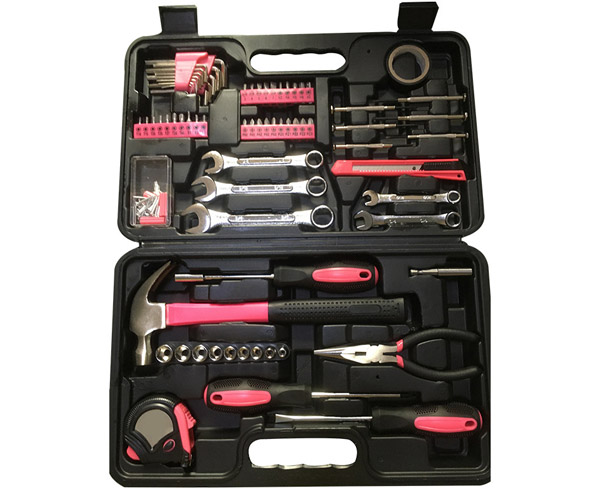
Regular Quality Inspections
Even with a trusted supplier, it’s important to conduct regular quality inspections to ensure the tools continue to meet your standards. This can be done through third-party inspection services or by arranging for a representative from your company to visit the supplier’s facility.
Conclusion
Choosing the right wholesale hand tool supplier requires careful consideration of multiple factors, from pricing and logistics to product quality and customer service. Whether you’re sourcing hammers, screwdrivers, pliers, pipe cutters, or more specialized tools, working with a reliable supplier -KOLARWIN will help ensure you receive the best tools at reasonable prices. With the right approach, you can establish long-term relationships with KOLARWIN, customize your tools to fit your brand, and ultimately grow your business by offering high-quality tools at competitive prices.

